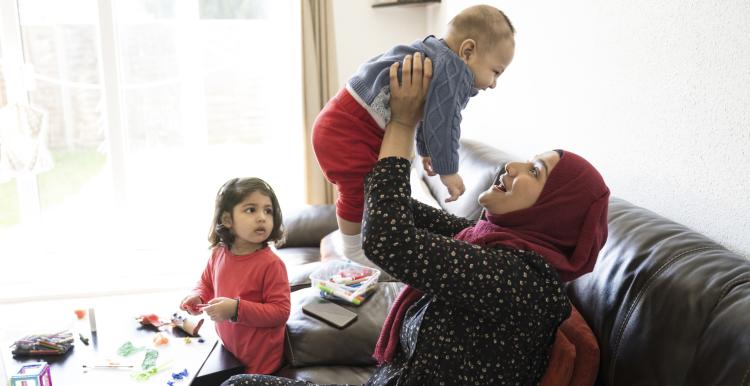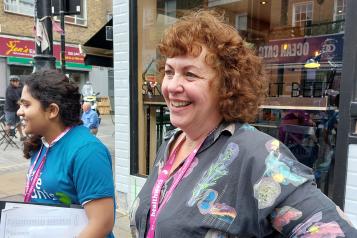Key facts about childhood immunisations

What is included in the childhood immunisations schedule?
The routine childhood immunisation schedule involves five appointments from age 8 weeks to 3 years 4 months at a GP surgery, usually with the practice nurse.
- Having all the vaccines offered protects children against 13 different serious diseases.
- All the vaccinations in the childhood schedule are free.
- If a baby, child, or adult has missed any immunisations it is never too late to catch up. Contact a health professional for advice.
- The vaccines we use in the UK are also used in over 100 countries worldwide and have been shown to be safe and effective.
- Global immunisation efforts have saved at least 154 million lives over the past 50 years.
- Immunisation is the most effective way to protect children against some very serious diseases.
- The reason we rarely hear about children getting vaccine preventable diseases e.g. measles, polio, mumps, diphtheria is because vaccines have been so effective.
- If you are not vaccinated against a disease, you are not protected from it.
- If one person gets an infectious disease, it can spread quickly through all the unvaccinated people.
- Leaving your child unvaccinated does leave them at risk of having very unpleasant illnesses that can have very serious consequences.
- Some vaccines work after one dose, but others need more doses to be effective, and for some, you need a booster later to maintain your immunity which can lessen over time.
- If you have religious concerns you should talk to a health professional. There are alternatives to the porcine component found in some vaccines (MMR & nasal influenza)
- If you have concerns about allergies, for example, egg, peanut or antibiotic allergies, eczema & asthma you should talk to a health professional to reassure yourself and ensure your child is offered the best protection.
- Outbreaks of disease have economic implications e.g. time off school/work, additional childcare, closure of schools/workplaces.
MMR (Measles Mumps & Rubella)
Measles can make children seriously unwell with one in five needing a hospital visit. One in 15 children develop serious complications from a measles infection, which can include meningitis and blindness. It is also highly infectious – just one person with measles can infect nine out of ten people who have not had the MMR vaccination.
- The first vaccine dose is given at 13 months and the second at 3 years 4 months of age.
- Two doses of the MMR vaccine provide the best protection.
After 2 doses:
- around 99% of people will be protected against measles & rubella
- around 88% of people will be protected against mumps
- Protection starts within 2 weeks of having the MMR vaccine
- People who are vaccinated against mumps, but still catch it, are less likely to have serious complications or be admitted to hospital.
Information about pork gelatine in certain vaccines
Gelatine is a substance derived from the collagen of animals such as chickens, cattle, pigs, and fish (collagen is a protein found in tendons, ligaments, bone, and cartilage). Porcine gelatine comes from collagen in pigs. All forms of gelatine used in medicines are manufactured under strict hygiene and safety regulations. Gelatine is used as a stabiliser in some medicines and vaccines.
- In the UK, we have 2 MMR vaccines. One contains gelatine, the other doesn’t. You can request the vaccine that does not contain pork gelatine by talking to your practice nurse or GP.
- The nasal spray that protects children against the flu also contains pork gelatine. There is an injectable alternative that does not contain pork gelatine.
Vaccines and porcine gelatine (publishing.service.gov.uk) in Arabic, Bengali & Urdu
BCG
The BCG vaccine, which gives protection against tuberculosis (TB) infection is not routinely given as part of the NHS childhood immunisation schedule.
- A midwife, health visitor or GP will be able to advise if a baby/child requires a BCG.
It is recommended that a baby has the BCG vaccine if any of the following apply:
- they live in an area of the UK where there is a higher risk of getting TB
- they have a parent or grandparent born in a country where there is a higher risk of getting TB
- they'll be going to live or stay in a country where there is a higher risk of getting TB
- they have been living with, or in regular close contact with, someone who has or had TB
If a baby needs the vaccine, it will usually be given at around 28 days old.
Egg Allergy
There are 2 vaccines in the UK routine schedule that contain small amounts of egg protein:
- the flu vaccine – which is grown on hens' eggs. It can potentially trigger an allergic reaction in people with an egg allergy.
Children and adults with an egg allergy are advised to have either:- an egg-free inactivated flu vaccine
- a vaccine with a very low egg protein (ovalbumin) content
- the live nasal spray flu vaccine given to children has a very low egg protein content. It can be safely given to children with an egg allergy.
- Children and adults who have previously had a very severe allergic reaction to eggs may be advised to have their flu vaccine in a hospital.
- the MMR vaccine – which is grown on cells from chick embryos, which is not the same as hens' eggs. This means it does not trigger an allergic reaction. Children and adults with a severe egg allergy can safely receive the MMR vaccine.


